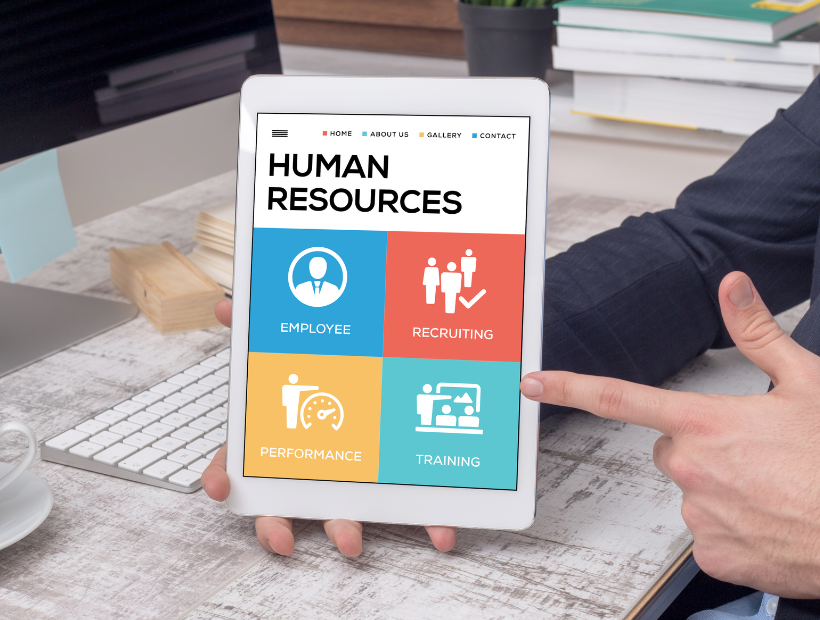A solid HRIS helps manage everything from onboarding and payroll to compliance and performance, all in one place. But not every system is built the same, and the right fit depends on your company’s structure, goals, and growth plans. Before exploring your options, it’s important to understand what actually matters when evaluating an HRIS in today’s fast-moving work environment.
What to Look for in an HRIS in 2025
With hundreds of HRIS platforms available, knowing what to prioritize can save you time, money, and future headaches. The best systems in 2025 aren’t just feature-packed, they’re built to support flexibility, global teams, and smarter decision-making. Here’s what you should look for:
- User-Friendly Experience
A clean interface and intuitive navigation make adoption easier across your HR team and employees.
- Scalability
Your HRIS should grow with you, whether you’re hiring 5 people or 500.
- Integration Capabilities
Look for systems that connect smoothly with payroll, time-tracking, accounting, and communication tools.
- Compliance & Data Security
With evolving labor laws and data privacy regulations, strong compliance support and encryption are non-negotiable.
- Automation & Analytics
From automated workflows to insights on turnover or hiring trends, a good HRIS gives you more than just data, it helps you act on it.
Top 5 HRIS Systems for 2025
The best HRIS platforms in 2025 offer more than just digital recordkeeping—they power smarter people operations. Whether you’re a startup or an enterprise, here are five standout systems that can adapt to your needs and scale with your business:
1. BambooHR
BambooHR is known for its intuitive design and simplicity, making it a go-to for small and mid-sized businesses. It covers essentials like employee records, PTO tracking, onboarding, and basic performance management. The platform is easy to implement and ideal for companies that want to modernize HR without overwhelming their team with complex features.
What makes BambooHR stand out is its focus on user experience. It offers clean dashboards, mobile access, and customizable workflows that streamline day-to-day HR tasks. While it may not have the depth of an enterprise-level system, it delivers excellent value for companies that need straightforward, reliable HR functionality.
2. Workday
Workday offers an enterprise-grade HRIS built for large, global companies. It’s packed with advanced features for workforce planning, compensation management, and real-time people analytics. While it’s on the higher end in terms of cost and setup, it delivers depth, scalability, and automation that enterprise teams need to manage complex HR operations.
In addition to core HR functions, Workday provides robust support for finance and planning, making it a favorite among companies looking for integrated business systems. It’s especially powerful for companies managing global workforces, offering multi-currency payroll, localization tools, and strong compliance features across regions.
3. Remire
Remire stands out by combining a powerful HRIS with global hiring, payroll, and compliance solutions. It’s built for companies managing distributed teams or hiring across borders. In addition to core HR functions, Remire supports workforce onboarding, policy compliance, benefits tracking, and local payroll—all in one platform. It’s an ideal choice for companies that need more than just HR software—they need a strategic partner for scaling internationally.
What makes Remire unique is its deep understanding of global employment challenges. From managing contractor and employee classification to handling region-specific tax and labor laws, Remire helps businesses stay compliant while focusing on growth. Its platform is built to support fast-growing companies that need flexibility, visibility, and full control over their global teams.
4. HiBob (Bob)
HiBob brings a modern, engaging interface to HR management, with a strong focus on global teams and employee experience. It shines in areas like onboarding, performance tracking, and engagement analytics. Its flexibility makes it a great fit for remote-first companies looking to build strong internal culture.
One of Bob’s strengths is how it blends HR processes with people-focused features, such as pulse surveys, peer feedback, and social recognition. It also offers easy integrations with collaboration tools like Slack and Microsoft Teams, making it a strong cultural and operational fit for companies embracing hybrid or remote work environments.
5. Gusto
Gusto combines payroll, benefits, and HR tools into one platform tailored for small businesses and startups. Its user-friendly interface, automated tax filings, and benefits administration make it a strong choice for companies looking to centralize operations without needing a full-time HR team.
What sets Gusto apart is its simplicity and automation. It handles everything from onboarding and direct deposits to health insurance management, making HR less of a burden for lean teams. For businesses new to HR tech or those scaling from manual processes, Gusto offers an affordable and approachable solution.
How to Pick the Right HRIS for Your Business
With so many strong options on the market, picking the right HRIS comes down to understanding what your business truly needs, not just now, but as it grows. Here are a few practical steps to help guide your decision:
1. Know Your Team’s Size and Structure
Start by evaluating how many people are on your team, where they’re located, and how you expect your workforce to evolve. Some platforms cater to small teams, while others are better suited for global or rapidly scaling organizations. Consider whether your HRIS needs to support contractors, remote employees, or multiple office locations as your team structure becomes more complex.
2. Prioritize Must-Have Features
List the non-negotiables: Do you need automated payroll? Performance reviews? Compliance support? Choose a system that covers your essentials without overwhelming you with tools you don’t need. It’s also important to look at usability, features should be easy to access and use by both HR teams and employees alike.
3. Look for Integrations
Your HRIS should connect with the tools you already use, like Slack, accounting platforms, ATS, or time-tracking systems. The more seamless the integration, the smoother your operations. Make sure your chosen platform offers open APIs or native integrations that won’t require extra time or cost to implement.
4. Request a Demo and Test It
Most platforms offer a free trial or guided demo. Use this time to see if the system is intuitive, flexible, and a good fit for your workflow. Don’t skip this step, it can reveal dealbreakers early. Involve your HR team or key users during this phase to get direct feedback on usability and overall experience.
5. Consider Support and Pricing
Transparent pricing and responsive customer support can make a big difference, especially during implementation or troubleshooting. Choose a provider that feels like a partner, not just a vendor. Look for support availability (chat, phone, email), onboarding help, and documentation that can help you maximize value from day one.
Is Your HR Tech Ready for 2025?
Choosing the right HRIS isn’t just about ticking boxes—it’s about finding a system that fits how your team works and where your company is headed. The right platform can simplify processes, keep you compliant, and give your HR team room to focus on what really matters: people.
Whether you’re building a distributed team, expanding globally, or simply upgrading outdated tools, platforms like Remire offer flexible solutions that combine HRIS functionality with global payroll and compliance support. In 2025, the smartest investment you can make might just be in the system that runs your people operations.
Faqs
What is HRIS platform?
An HRIS platform is a digital system that helps businesses manage employee data, payroll, benefits, onboarding, compliance, and other core HR functions in one centralized place.
How do I choose an HRIS system?
Choose an HRIS system by assessing your company’s size, HR needs, and growth plans, then compare features, ease of use, integration options, pricing, and vendor support to find the best fit.
Which HRIS system is the best?
The best HRIS system depends on your business needs—BambooHR is great for simplicity, Workday for enterprise scale, and platforms like Remire for global teams and compliance support.
What are the best practices for ensuring data privacy compliance globally?
Best practices for ensuring global data privacy compliance include adhering to regional laws like GDPR and CCPA, using secure data storage, encrypting employee information, implementing strict access controls, and partnering with HR providers that prioritize data security.
What is the future of HRIS?
The future of HRIS lies in AI-driven insights, automation, and global capabilities, helping companies manage remote teams, ensure compliance, and make smarter people decisions in real time.


